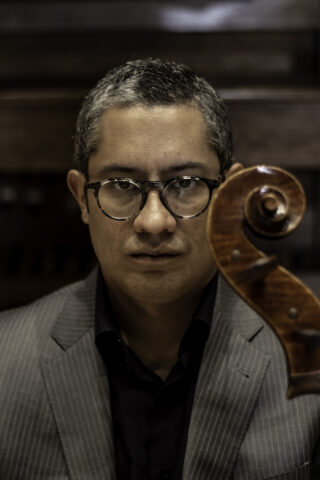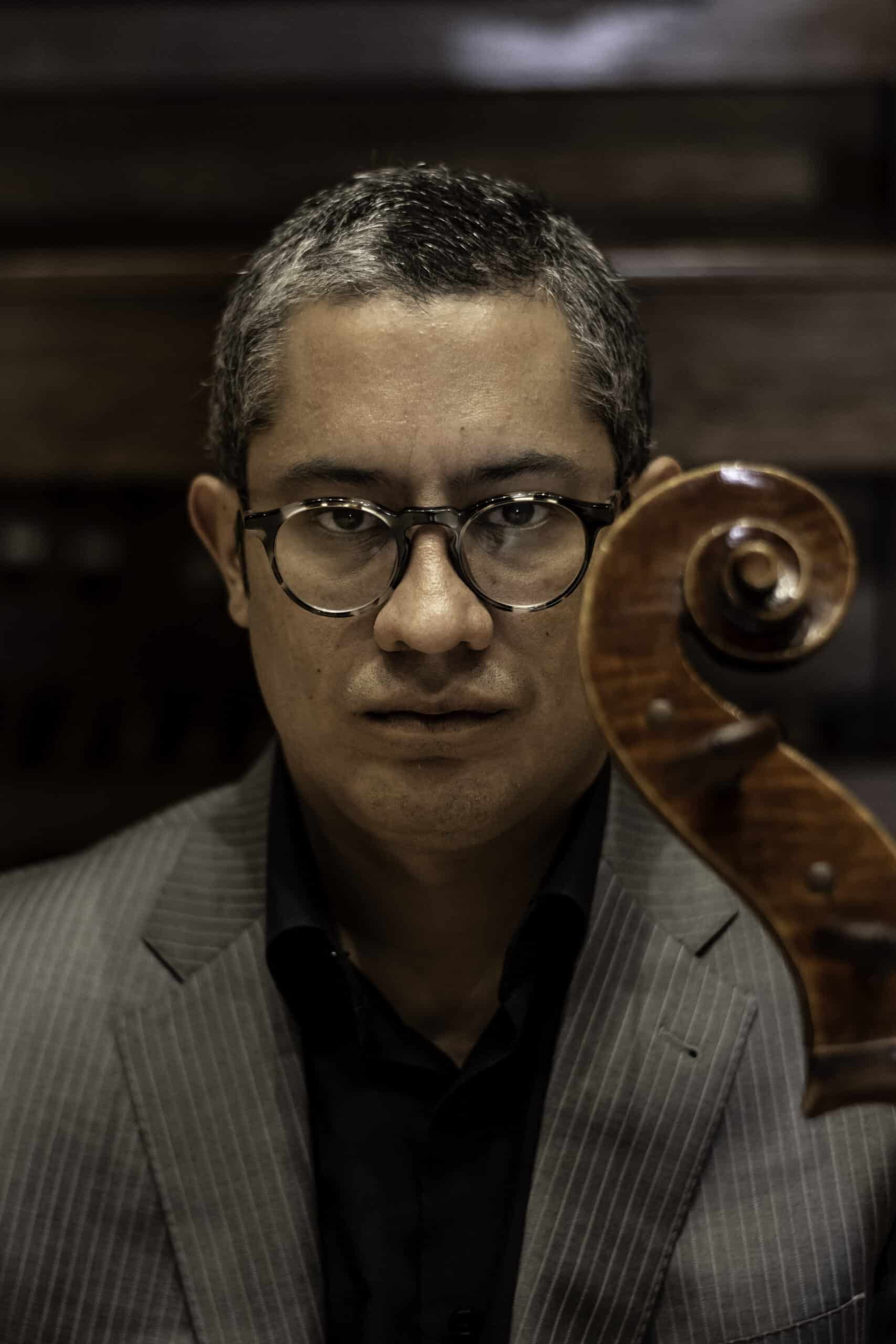A celebrated concert cellist, chamber musician, pedagogue and scholar, Horacio Contreras first was exposed to music through the famed El Sistema music education program in his native country of Venezuela. Now, as a teacher and Chicago Musical Pathways Initiative mentor, he exemplifies El Sistema’s core value: giving back.

CMPI Faculty Member Horacio Contreras. Photo by Natali Herrera-Pacheco
“I took cello at age 13 after my sight-singing teacher suggested that I should try the instrument. I loved it,” Contreras recalled. His musical abilities quickly advanced and he started teaching at a young age, 16 years old. “I was lucky to have fine students from the beginning, and some of those first students are today members of relevant orchestras and faculty of conservatories in Europe.” Contreras continues to pay forward his good fortune in the form of teaching and mentoring. “That is why teaching is so important to me.”
Much like CMPI, Contreras’s teaching philosophy emphasizes meeting the individual needs of each of his students. At the core, “I want to assist students in developing an emotionally and physically healthy association with music. I base my methodology on a continuous evaluation of the particular needs and goals of each individual student. To that end, I not only research the methods of the most successful teachers from the past and the present, but I also strive to discover new repertoire to help my students find their own artistic voice. I continuously create new exercises that are adapted to the needs of my own students as well.” For example, his cello adaptation of the celebrated Exercises in Various Combinations of Double-Stops, by Roland Vamos, was recently published by Carl Fischer Music.
In CMPI, Horacio Contreras has found a program that instills important values in his student beyond musicianship. “I learned about CMPI through my dear friend and admired colleague Tanya Carey. Dr. Carey mentioned to me that one of her students was having a terrific experience through the program. When my student, Jan, mentioned his interest about the program, I was extremely excited. I believe that a big part of finding a distinct voice as an artist comes from knowing that your work is relevant for the community beyond the sound and the beauty, and I believe that CMPI models those ideas to Jan in a powerful way.”
Dr. Contreras met with CMPI fellows and families in February to host a cello masterclass and speak about a catalog he developed featuring Latin American composers for the cello. Asked to describe the catalog, Contreras said he created it in partnership with the Sphinx Organization and Dr. German Marcano. The catalog has since obtained the support of CelloBello.org. The original catalog was started by Dr. Marcano as his dissertation at University of Wisconsin-Madison. It was published as a book in 2004 by a Venezuelan publishing house.
“I deeply enjoyed researching that book because I was drawn by the repertoire of Latin America,” said Contreras. “Back in 2017, I had the idea of updating it and finding a way to make it accessible online by obtaining the support of Afa Dworkin and the Sphinx Organization. It was an incredible boost to the power of the resource, and today it is used around the world.”
Drs. Contreras and Marcano constantly update the catalog, which now includes almost 1,000 works that were not in the original book. “We recently have added my wife to the collaboration, Dr. Natali Herrera-Pacheco. In her vision, the catalog will serve more broadly as a tool to build cultural bridges between Latin America and the US, as well as giving Latin American immigrants powerful ways to negotiate their identities in this country and around the world.”
“I am deeply honored to be a part of this meaningful initiative,” said Contreras, reflecting on his work with CMPI. “I have seen the fire in the eyes and have felt the souls in the sound of every CMPI student that I have heard and watched perform. I believe that the future of classical music is in programs such as CMPI, where the beauty is not only in the sound or the artistic ideas, but also in the mission of empowering those students that have the potential to give shape to a better and more inclusive society.”
To learn more about Horacio Contreras, visit https://www.horaciocontreras.com/.
